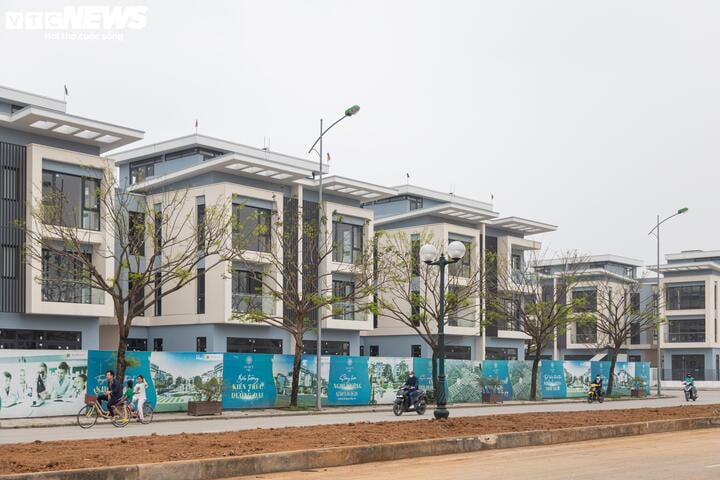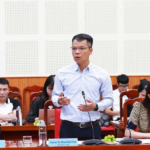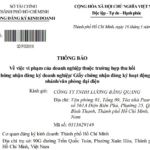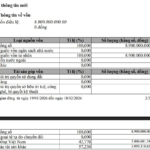The cause, according to the Ministry of Finance, is that Vietnam’s current personal income tax policy on real estate transfers does not distinguish based on the transferor’s holding period.
Necessary but Cautious Approach Needed
Experts suggest that if this proposal is approved, it could incentivize individuals to hold real estate for the long term, rather than engage in short-term speculation. This would contribute to stabilizing the real estate market, reducing the risk of a “bubble,” and ensuring a sustainable housing supply.
Additionally, there is potential to increase tax revenue from short-term transactions, especially in a vibrant real estate market context, thus contributing to the state budget.
Mr. Nguyen Van Dinh, Chairman of the Vietnam Real Estate Brokers Association, analyzed that taxing personal income from buying and selling houses based on the holding period would be a solution to curb speculation, helping to regulate the real estate market, and leading to more stable housing prices, especially in major cities like Hanoi and Ho Chi Minh City.
“We cannot avoid taxing real estate just because it is difficult. Taxation should primarily target those who accumulate properties instead of those who buy real estate for living or production purposes. This will increase budget revenues and regulate the market,” said Mr. Dinh.
Furthermore, according to Mr. Dinh, it is common for speculators to hoard properties when there is a scarcity of supply, waiting for prices to increase to make higher profits. Therefore, taxing real estate is a reasonable approach.
However, experts also emphasize that implementation requires careful consideration of multiple factors.
Specifically, according to Savills Vietnam, implementing a holding period-based real estate tax requires various technical solutions, including calculating infrastructure investment costs, developing tax tools, and, most importantly, ensuring transparency and digitizing all residential real estate data. These factors present significant challenges and demand substantial financial resources, strong commitment from authorities, and long-term coordination.

According to experts, taxing home purchases based on the holding period requires considering multiple factors. (Illustrative image: Minh Duc)
Mr. Dinh also emphasized that the taxation process must include technical measures to ensure fairness and accuracy. For instance, there should be a distinction between someone who needs to sell a house immediately after purchase due to financial constraints and someone who buys and sells quickly to make a profit.
“The law on taxation should be comprehensive to avoid disadvantages for people who are not speculating and driving up market prices,” he added.
Sharing a similar view, Mr. Pham Duc Toan, CEO of EZ Property, agreed that taxing personal transfers of real estate based on the number of years of ownership is a suitable approach to increase budget revenues. However, he expected that applying this regulation to reduce housing prices would be “hard to achieve.”
“When transferring ownership, real estate owners will include all costs in the final selling price. As a result, the buyers will ultimately bear the brunt,” acknowledged the CEO of EZ Property.
Mr. Le Xuan Nghia, a member of the Monetary and Financial Policy Advisory Council, pointed out that the current price of an apartment is incredibly high, around 60-70 million VND per square meter, which is unaffordable for many. Moreover, many people buy houses not for living but to rent them out, so it cannot be considered speculation. Clearly, taxing the second property or based on the holding period is not a suitable solution for the current market.
Mr. Nghia suggested that when applying the tax, it is necessary to consider whether the tax revenue can offset the costs. To prevent speculation effectively, more public services and expenses are required to ensure fairness for the people, leading to higher costs for taxation than tax collection.
The Common Practice of “Surfing”
In reality, the practice of buying and selling, or “surfing,” real estate is prevalent in Vietnam. A recent report by PropertyGuru Vietnam revealed that in 2023, 15% of investors held real estate for only three months before selling, 36% held for 3-6 months, and 35% held for 6-12 months.
This means only 16% of investors in Vietnam hold on to their properties for one to two years or longer. In contrast, in Europe, the holding period for real estate before selling is much longer: 7% of buyers hold for 1-3 years, 23% for 3-5 years, 33% for 5-10 years, and 38% for more than 10 years.
The “buy fast, sell quick” mentality can stem from various reasons, but it is mainly driven by “surfing” investors. One of the causes of this rampant speculation is the extremely low income tax rates on real estate transfers and rentals in Vietnam.
For instance, investors only pay a 2% income tax on real estate transfers and a 5% income tax on rentals (applicable to revenue above 100 million VND). Consequently, according to the Ministry of Finance, to curb real estate speculation, some countries have utilized tax tools to increase the costs of speculative behavior and reduce its attractiveness. One such tool is personal income tax.
Additionally, some nations impose taxes on profits from real estate transactions based on the frequency of transactions and the time between purchase and sale. The shorter the holding period, the higher the tax rate, and vice versa.
The Ministry of Finance cited examples from Singapore and Taiwan (China). In Singapore, if a property is bought and sold within the first year, a 100% tax is levied on the difference in value; after two years, the rate is 50%; after three years, it’s 25%. In Taiwan, a 45% tax rate applies to real estate transactions made within the first two years of purchase; 35% for transactions between 2 and 5 years; 20% for 5 to 10 years, and 15% for transactions after 10 years.
“To achieve a reasonable level of regulation and prevent speculation and real estate “bubbles,” it is possible to consider imposing personal income tax on real estate transfers based on the holding period, as practiced in some countries,” the Ministry of Finance stated.
Regarding the specific tax rate, the Ministry of Finance suggested that it should be studied and determined appropriately, reflecting the actual situation of the real estate market. Simultaneously, implementing a personal income tax policy on real estate transfers based on the holding period should be synchronized with the improvement of related policies on land and housing, as well as the readiness of information technology infrastructure for land and real estate registration.
The Taxman Cometh: The Second Home Edition
The Ministry of Finance proposes studying the implementation of taxation on personal income from real estate transfers based on holding periods, drawing from the experiences of several countries. This progressive approach aims to create a fair and efficient tax system, ensuring that individuals contribute proportionally to their gains from real estate investments.
The Art of Taxing Personal Income from Real Estate Flipping: A Time-Sensitive Approach
The Ministry of Finance suggests that to achieve a reasonable level of regulation and curb speculation and property bubbles, it is worth considering imposing a personal income tax on property transfers based on the length of ownership.
A Sugary Proposal: The Taxing Question of Sweet Drinks
The proposed Special Consumption Tax Law (amended) will be presented to the National Assembly for opinions at the 8th Session, taking place in November 2024. One of the novel points of this draft law is the proposed tax on sugary drinks. However, as this is the first time that a special consumption tax on sugary drinks has been proposed in such a law, it has sparked much debate and controversy.
The City of Ho Chi Minh Collects 6 Trillion VND from Real Estate Transactions
Compared to the same period last year, revenue from real estate transfers in Ho Chi Minh City increased by VND 1,662 billion in the first ten months of this year.




















